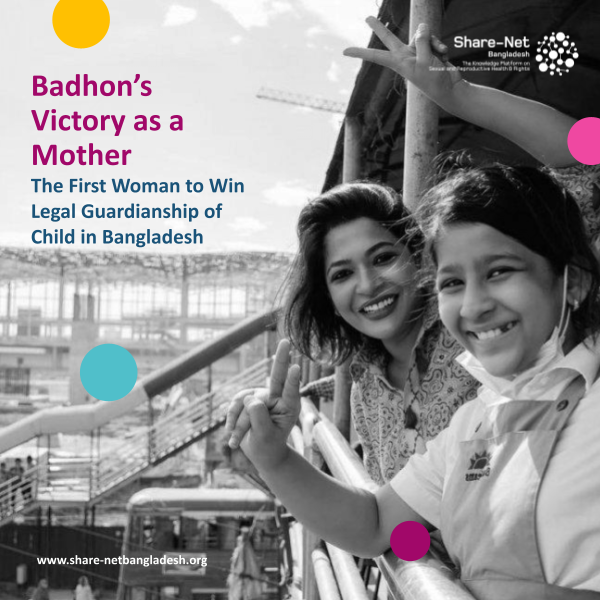Badhon’s Victory as a Mother: The First Woman to Win Legal Guardianship of Child in Bangladesh
“In Bangladesh, although women receive custody of children, no one is granted guardianship except in one case. Our actress Azmeri Haque Bandhon got custody of her daughter and made history.” – Lawyer Sara Hossain.
Actress Azmeri Haque Badhon has etched her name in the history of Bangladesh’s judiciary system by becoming the first mother in the nation to secure full custody of her child. This unprecedented achievement marks a significant stride towards gender equality and empowerment, shedding light on the longstanding disparities in guardianship laws and the struggles faced by women in asserting their rights.
The recent ruling by the High Court on April 22, 2024, not only granted Badhon sole guardianship of her daughter but also prompted the establishment of a committee to formulate policies for determining guardianship of minors, addressing a critical gap in existing legislation. This move signifies a pivotal moment in Bangladesh’s legal landscape, signaling a shift towards recognizing and safeguarding the rights of mothers in custody battles.
Under Section 19(b) of the Guardian and Guardianship Act, 1890, the father traditionally held sole guardianship of a minor, leaving mothers marginalized in the legal framework. However, this archaic provision has been challenged as inconsistent with constitutional rights, sparking a crucial dialogue on reforming outdated laws to align with contemporary notions of equality and justice.
Badhon’s journey to securing guardianship was fraught with challenges, underscoring the systemic barriers faced by women navigating the legal system. Despite being the primary caregiver and sole breadwinner, she encountered resistance in asserting her rights, highlighting the pervasive gender biases that pervade society.
In her quest for justice, Badhon emerged as a formidable advocate, leveraging her knowledge of guardianship laws to challenge the status quo. Her unwavering determination and resilience in the face of adversity serve as a beacon of hope for countless women grappling with similar struggles, inspiring them to stand up for their rights and pursue legal recourse.
“When the judgment came in my favour, I did not understand its importance so much. I wanted to keep my child close, since I was the sole breadwinner, why can’t I be her guardian? The child’s father has never fulfilled any responsibility. It couldn’t even be proved it in court, I was given guardianship for that.” said Badhon.
The significance of Badhon’s victory extends beyond her personal triumph, resonating with women across Bangladesh who have long been disenfranchised in matters of guardianship. By amplifying their voices and championing their cause, she has catalyzed a movement towards greater gender inclusivity and empowerment, challenging entrenched norms and stereotypes that perpetuate inequality.
As Bangladesh embarks on a journey towards legal reform, it is imperative to prioritize the rights of women and children, ensuring that guardianship laws reflect the principles of fairness and equity. The establishment of policies to address these issues signifies a step in the right direction, signaling a commitment to upholding the rights enshrined in the constitution and promoting gender justice. “I don’t want my achievement to be only mine, I want every woman in Bangladesh to have the right to her child,” Badhon said.
Badhon’s victory serves as a testament to the power of perseverance and the indomitable spirit of women in the face of adversity. Her courage in confronting societal norms and challenging legal injustices exemplifies the transformative potential of grassroots activism in effecting meaningful change.
Moving forward, it is essential to build upon this momentum and enact comprehensive reforms that safeguard the rights of women and children, fostering an environment of equality and opportunity for all. By harnessing the collective strength of civil society, policymakers, and advocacy groups, Bangladesh can pave the way for a more just and inclusive society, where every individual has the opportunity to thrive and fulfill their potential.
Source: The Dhaka Tribune

